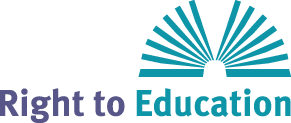The Joint Expert Group UNESCO (CR)/ECOSOC (CESCR) on Monitoring of the Right to Education in its Second Meeting in May 2004 stated that both the International Covenant on Economic, Social and Cultural Rights (ICESCR) and the Convention against Discrimination in Education (CADE) needed to be carefully examined in a comparative perspective. This should be guided by the General Comments and the Revised Guidelines of CESCR used for monitoring work and the new guidelines for monitoring the implementation of CADE. The Joint Expert Group noted that 83 States are parties to both the CADE and the ICESCR. There is thus the risk of overlaps in the work of the Committees (CESCR and CR) as well as of the States parties’ reports. It was therefore suggested that a document, “which brings out the common features as well as differences in CADE and ICESCR along with a chart of equivalent provisions and the States which are parties to both CADE and ICESCR” be prepared. The present document on the comparative analysis of Articles 13 and 14 of the Covenant and the Convention has accordingly been elaborated.
Co-operation between UNESCO’s Committee on Conventions and Recommendations (CR) and The United Nations Committee on Economic, Social and Cultural Rights (CESCR) on the objectives for monitoring and promoting the Right to Education.
"In our globalized world, education and the fight against discrimination remains a major issue. Thus discriminatory practices still exist today despite the fact that discrimination has no justification in international law.
Faced with this challenge, not only is education required to play an important role in the fight against discrimination, but access to all levels of education must be ensured systematically and without discrimination. This is one of the major issues involved in the right to education."
The Expert Consultation on the Operational Definition of Basic Education, organised from 17 - 18 December 2007 at UNESCO, brought together eminent experts from different regions and further discussed a preliminary draft of operational definition that was initially proposed during the Experts’ Workshop on “Challenges and Perspectives of Law and Education” organised in Sao Paulo in December 2006.
This Consultation was part of UNESCO’s efforts to address the request by the Joint Expert Group UNESCO (CR)/ECOSOC (CESCR) on the Monitoring of the Right to Education and by experts during the “International Conference on the Right to Basic Education as a Fundamental Human Right and the Legal Framework for its Financing” (Jakarta, 2005), to initiate a reflection and dialogue process for the elaboration of an operational definition of basic education and to elaborate a definition that would be universally accepted and recognized.
In preparation for this meeting, UNESCO undertook a thorough analysis of recent policy and legal texts which illustrated the lack of linguistic consistency in the terms used to describe the initial stages of formal education (basic, elementary, primary, fundamental, secondary, basic learning needs, etc.). A Thematic Framework, prepared by the Secretariat of UNESCO presented the policy and international normative framework as well as the right to basic education in constitutions and national legislation.
This publication comes in response to the Organization’s concern to bring its standard setting instruments into broader use, with the support not only of Member States as prime movers in that effort, but also of international organizations, decision makers, teachers, the intellectual community, and all the stakeholders of civil society. Readers of this publication will gain a better grasp of the standard-setting content of UNESCO’s instruments in the field of the right to education, and this will lend impetus to the international community’s efforts in that regard.
Ce document de recherche et d’orientation étudie certains aspects du droit à l'éducation qui pourraient nécessiter un ancrage plus solide dans le cadre normatif international et une expansion potentielle pour le 21st siècle. L'éducation numérique, la mobilité croissante des personnes, l'évolution démographique, le changement climatique et les attentes en matière de possibilités d'apprentissage tout au long de la vie ne sont que quelques-uns des domaines qui mettent à l'épreuve les limites du cadre normatif international existant. Aboutissement d'un cycle de consultations ouvertes, de séminaires et d'événements internationaux, ainsi que de recherches, ce document présente quelques-unes des tendances émergentes, des défis et des normes qui ont été discutés.
This policy-oriented research paper investigates some of the aspects of the right to education that might require a stronger footing in the international normative framework and potential expansion for the 21st century. Digital education, increasing human mobility, changing demographics, climate change, and expectations of opportunities for learning throughout life are just a few of the areas that are testing the limits of the existing international normative framework. The culmination of a round of open consultation processes, as well as international seminars and events, and research, this paper presents some of the emerging trends, challenges, and norms that have been discussed.
